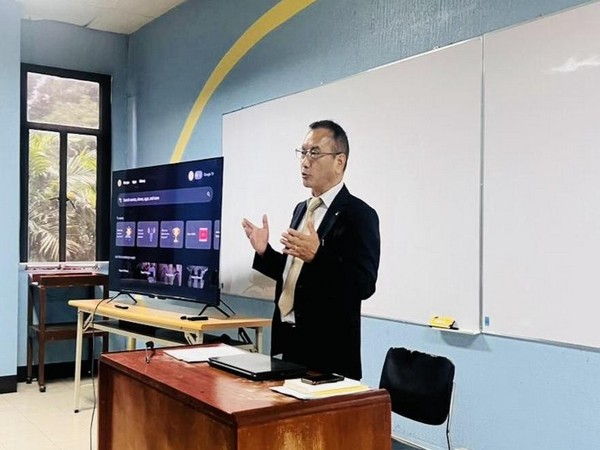Tsewang Gyalpo Arya, the Dalai Lama’s representative for Japan and East Asia, concluded his official visit to the Philippines, where he spotlighted the ongoing struggle for Tibetan autonomy and human rights.
The Central Tibetan Administration (CTA) confirmed that Arya’s engagements included lectures and discussions emphasizing the importance of international support for Tibet, building on the Philippines’ history of backing Tibet’s freedom movement since the 1960s.
During a meeting with Congressman Adrian Amatong, Arya stressed the relevance of the recently enacted U.S. Resolve Tibet Act and advocated for similar legislative efforts within the Philippine parliament. He highlighted the urgency of increasing awareness about Tibet’s plight, noting the Filipino people’s strong affinity for non-violent struggles for justice and freedom. Congressman Amatong acknowledged this connection, emphasizing that the Filipino spirit of freedom aligns naturally with Tibet’s aspirations for autonomy.
Arya also met with Wallace Chow, representative of the Taipei Economic and Cultural Office, to explore shared ideals of freedom and democracy in the contexts of Tibet, Taiwan, and China. Both representatives expressed solidarity in promoting these values globally, reaffirming their commitment to supporting oppressed communities through diplomatic efforts.
Arya’s tour aimed to build international support for the Tibetan cause, calling for sustained advocacy and engagement to address the unresolved conflict with China. His visit underscored the need for collective efforts in the global fight for human rights and autonomy, emphasizing Tibet’s struggle as part of a broader movement for justice.
The Tibetan issue remains centered on the region’s political, cultural, and human rights challenges, which have persisted since Tibet’s annexation by the People’s Republic of China in 1950. The forced exile of the Tibetan government and the emergence of the 14th Dalai Lama as a symbol of the struggle have defined Tibet’s quest for autonomy and cultural preservation.
The Chinese government reportedly enforces strict control over the region, leading to widespread allegations of cultural suppression, religious repression, and human rights abuses, including restrictions on language and spiritual practices. While many Tibetans and international advocates seek genuine autonomy or independence, China maintains that Tibet is an inseparable part of the nation.
This ongoing conflict not only affects the lives of Tibetans but also has significant implications for global politics, as various countries navigate their diplomatic relationships with China while addressing human rights concerns in Tibet.
(Inputs from ANI)




















